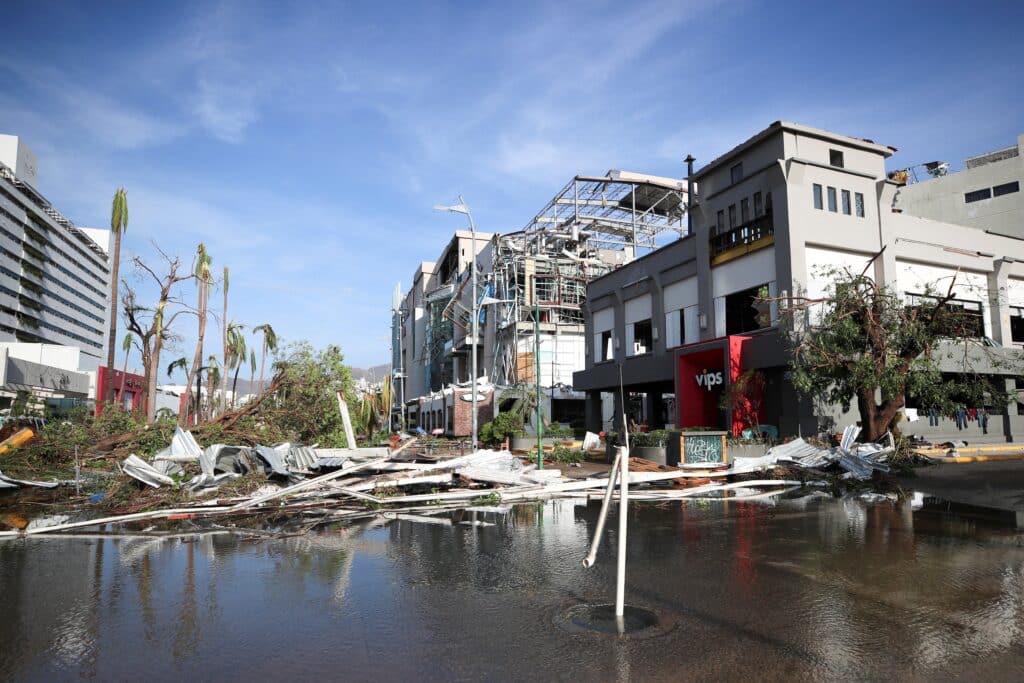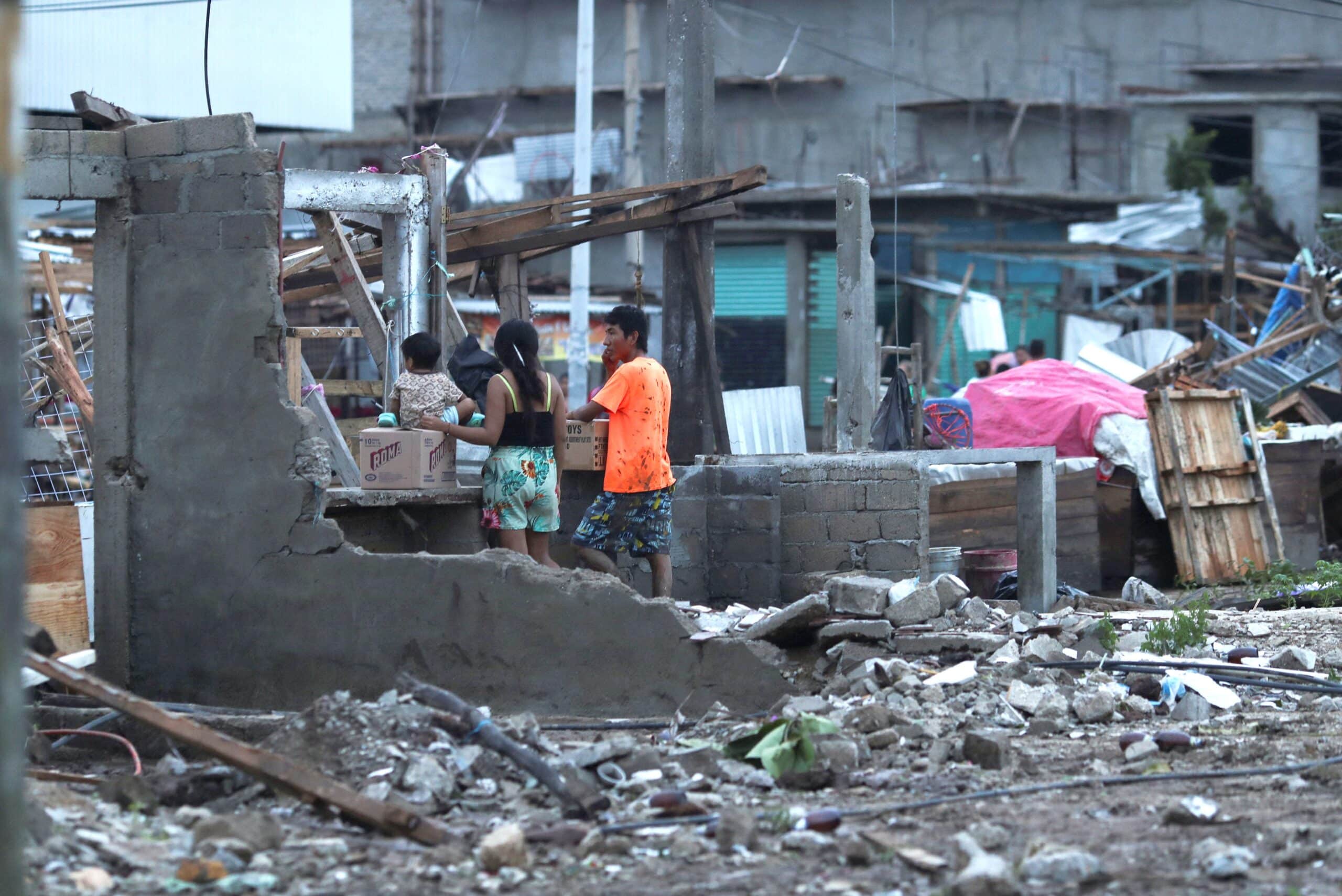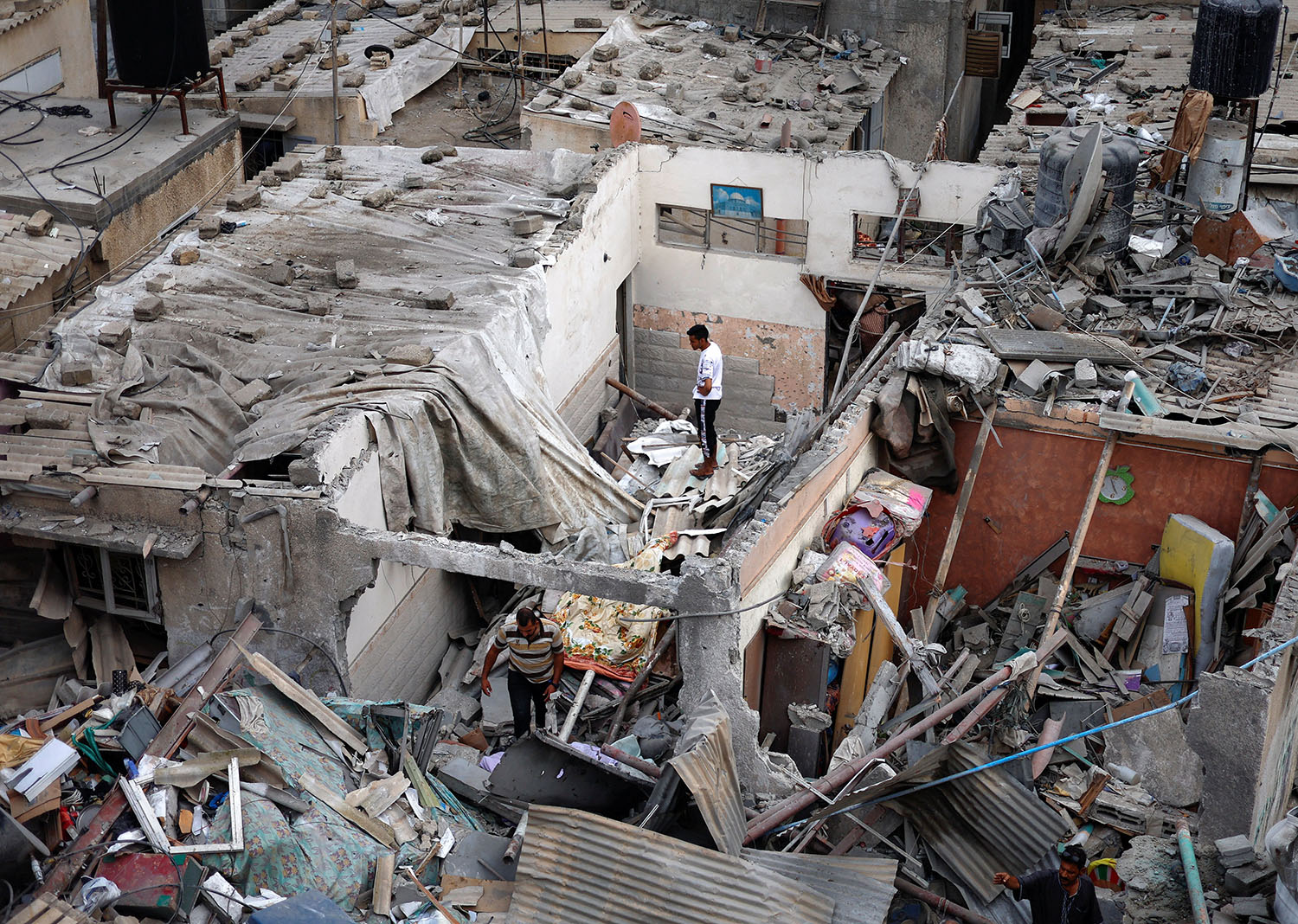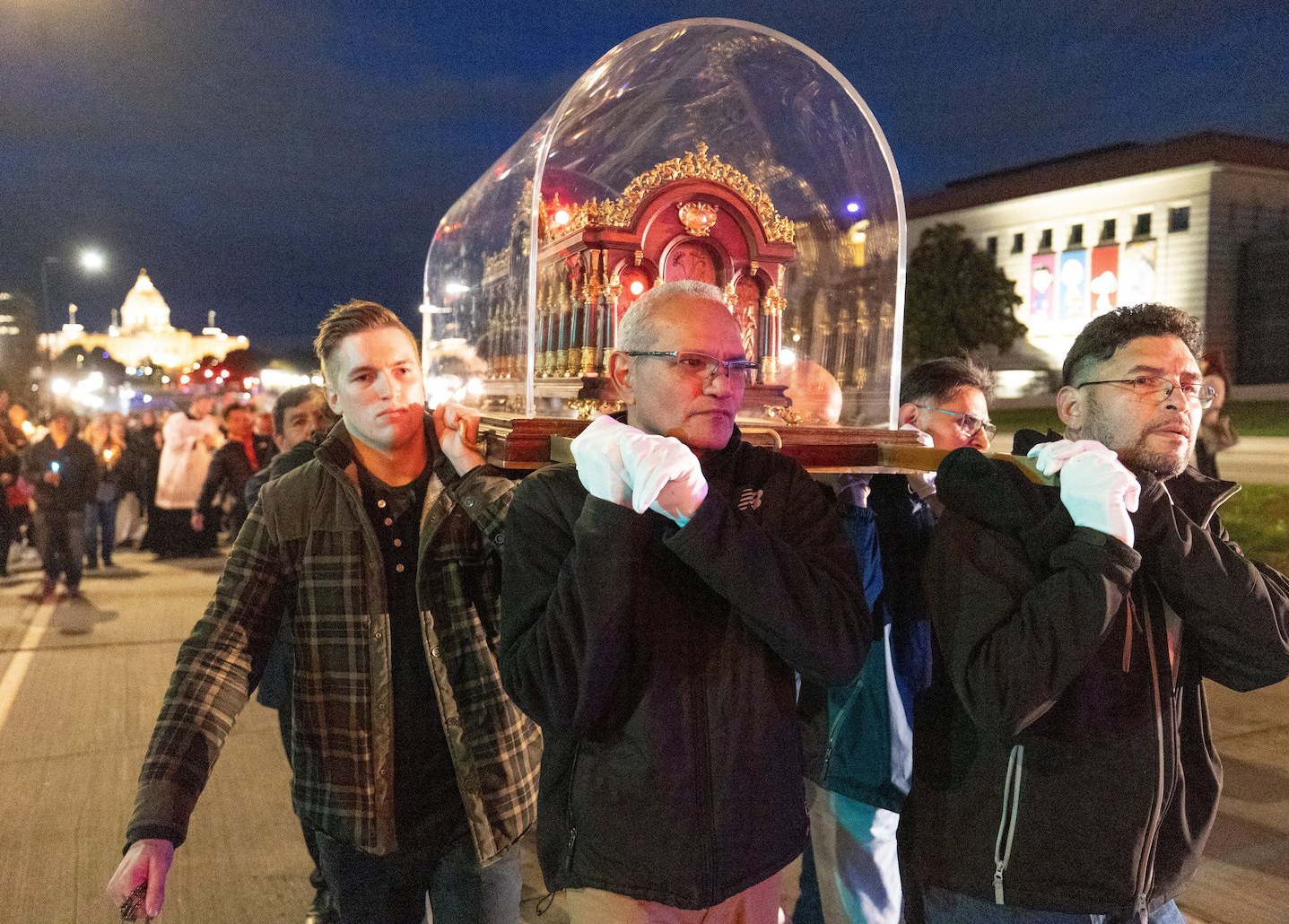(OSV News) — Mexico’s bishops expressed “closeness” with the affected populations and urged generosity after a monster Category 5 hurricane tore through Acapulco, leaving 27 dead and four people disappeared.
Cáritas México, meanwhile, mobilized a response to Hurricane Otis, which battered Acapulco around midnight Oct. 25 as the strongest hurricane to ever hit Mexico’s Pacific Coast, according to the National Hurricane Center, causing widespread property damage and flooding, while leaving the tourist destination incommunicado.
Dioceses in Mexico have established collection centers to help the homeless amid widespread devastation.
“We are aware of the pain and anguish that overwhelms thousands of families who have lost their homes, property and livelihoods in these disaster areas. Many localities suffered serious damage to infrastructure, and found themselves prevented from accessing essential services,” the Mexican bishops’ conference said in an Oct. 25 statement.
“In these difficult times, we call for unity and fraternity among Mexicans. We urge the provision of generous assistance for those affected, especially the poorest and most vulnerable. May no one remain indifferent to the suffering of others,” the statement continued.
“Spiritual and material accompaniment will be provided by dioceses and parishes to the fullest extent of our means. You are not alone, count on our prayers and the divine providence that never abandons us.”
Effects of Hurricane Otis
Such was the devastation of Hurricane Otis that Mexican authorities had little time to prepare, according to President Andrés Manuel López Obrador, who said throughout the day that he had little information on the situation in Acapulco. The government updated the death toll Oct. 26 at the president’s daily press conference.
The National Hurricane Center said at 10 p.m. on Oct. 24 that Hurricane Otis had explosively intensified by 95 mph during the past 24 hours.

Media arriving later in the day documented hotels and buildings badly damaged by winds of 165 mph, along with downed trees and entire parts of the city of 1 million residents underwater. The Guerrero state government estimated 80% of the city’s hotels were damaged.
The president tried reaching Acapulco, 235 miles south of Mexico City, overland, but his vehicle was impeded by mudslides and later got stuck in the mud. Mexico’s electrical utility said 58 power line towers were toppled in the storm.
Press photos showed people looting grocery stores; journalists reported little presence of law enforcement or soldiers — with the latter famed in Mexico for responding rapidly to natural disasters.
A devasting storm for Mexico
The storm’s devastation deepened the misery afflicting Acapulco in recent decades. Set on a picturesque bay with golden-sand beaches, Acapulco once glittered as the granddaddy of Mexican tourist destinations, but has been beset by neglect and drug cartel violence as visitors flock to other destinations such as Cancún.
Some observers in Mexico criticized the president for failing to prioritize disaster readiness.
López Obrador eliminated a series of public trusts — alleging unproven corruption claims — used for responding to events such as storms and earthquakes in 2020, arguing the money would be spent on the COVID pandemic response.
Journalist Juan Ortiz, who covers Congress, said via X that Finance Ministry documents show money from the disaster relief trust was spent on the construction of a tourist train circling the Yucatán Peninsula — a mega project the president has prioritized.







